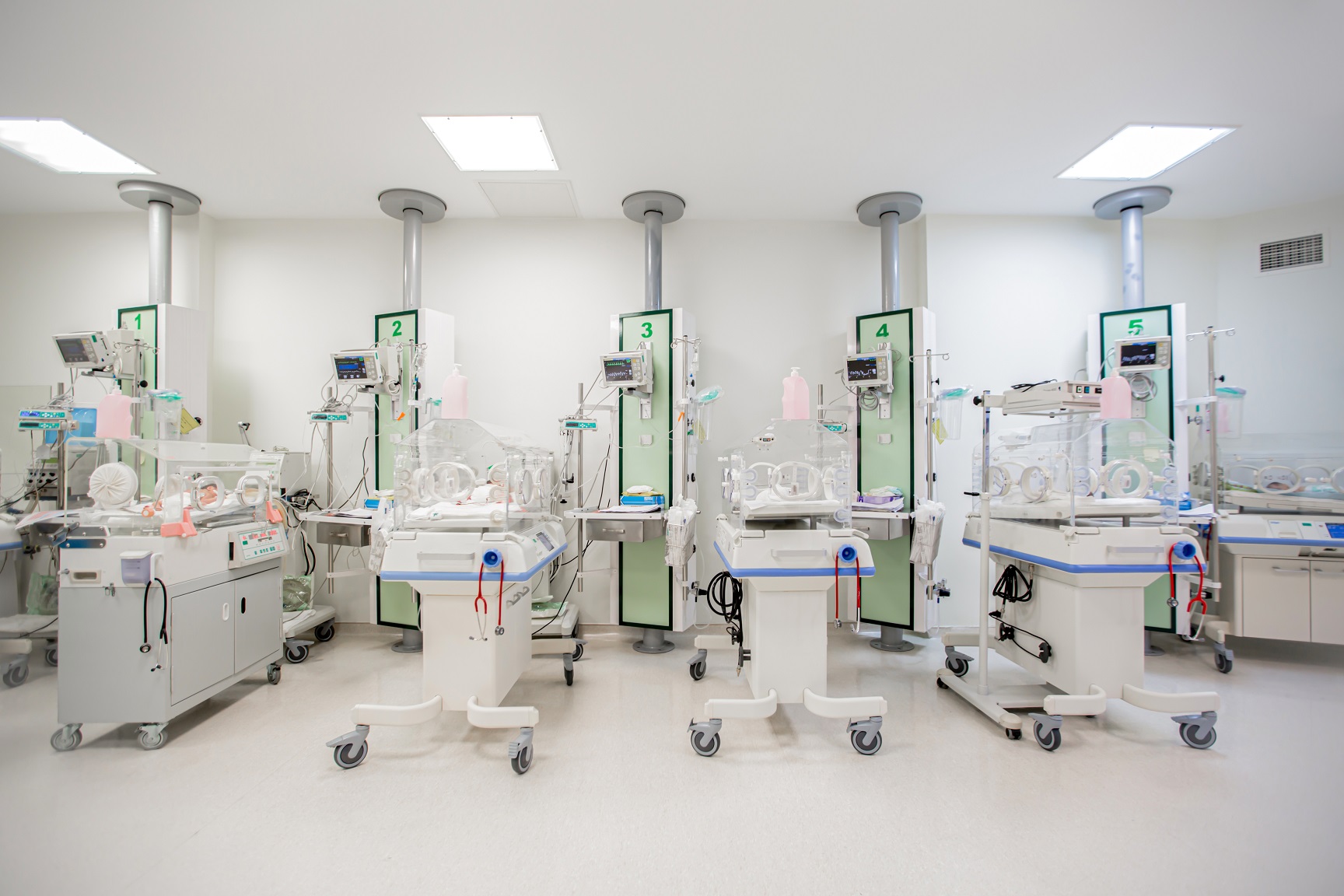Knowing the number of NICU beds within a community helps healthcare systems understand trends and anticipate needs for the workforce and other resources. Unfortunately, pinpointing precise NICU data can be challenging; currently, there is no updated, comprehensive registry for all NICUs across the country. Further, there are many types of NICUs, and each state has different protocols for certifying bed space and varying criteria.
With that in mind, we can leverage the data we do have available to track NICU bed patterns and anticipate upcoming changes. Here’s a look at NICU bed growth in 2023 and projections for 2024.
NICU Beds in 2023 at a Glance
According to a 2023 study published in Nature, 1,424 hospitals in the US have NICUs that were operational at the time of publication. Bed numbers ranged from 1 to 173, with the median number being 18. The study also broke beds out by level:
- Level II NICUs ranged from 1 to 40 beds with a median of 8
- Level III NICUs ranged from 4 to 98 beds with a median of 25
- Level IV NICUs ranged from 15 to 173 beds with a median of 55
In total, there were 35,601 NICU beds in the US. Broken down by level, there were 5,592 Level II beds, 20,631 Level III beds, and 9,378 Level IV beds.
Due to the lack of a comprehensive registry for NICU bed data, growth from previous years is difficult to pinpoint. However, data for NICU admission rates is available, which can help frame the current status of NICUs across the US. As of 2021, 18.3% of newborns had received some NICU care, representing a slight five-year increase compared to 17% of newborns in 2017.
Predictions for NICU Growth in 2024
The lack of available data, as well as the unpredictable nature of transmissible diseases, makes it challenging to predict NICU growth with great accuracy. Nonetheless, a recent report from Fortune Business Insights indicates that the global NICU market is expected to grow from $4.59B in 2019 to $7.72B by 2027. Maternal factors such as the rise in chronic illnesses such as diabetes and high blood pressure and an increase in sedentary lifestyles are said to be drivers for the market growth. Between 2% and 10% of pregnancies in the US are affected by gestational diabetes, which can increase the risk of being born early and requiring NICU care.
While the US is lacking a single source of unified data for NICU beds, trends from hospital data in recent years tells us that the number of NICU beds will likely continue to rise across the nation. For NNPs, this means the job outlook is good, as hospitals will continue to need the right medical team to deliver care for neonates.
If you’re looking to grow your career with the right employer, turn to Ensearch. We have been trusted among NNPs for locum and permanent positions since 1994. Allow us to help you find the right fit for your next assignment. Get started by contacting us for a no-cost consultation here.

